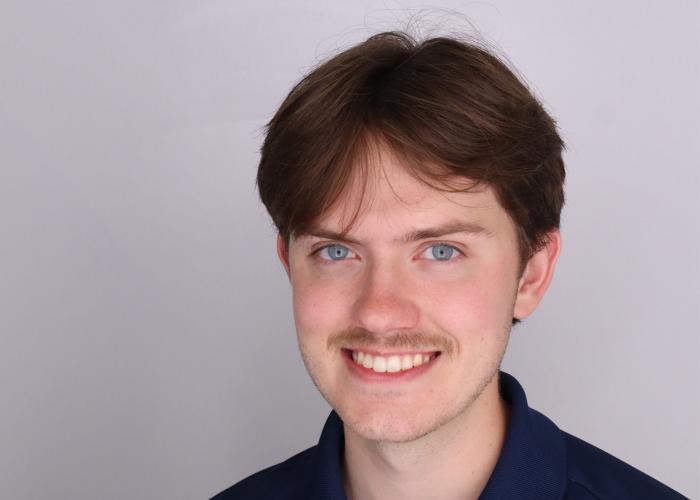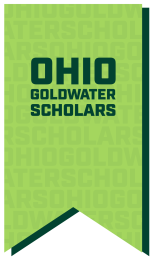


In a rare and unprecedented achievement, all four of Ohio University’s internal nominees for the prestigious Goldwater Scholarship won the award in 2024. The award honors college sophomores and juniors who have excelled in natural sciences, mathematics and engineering. OHIO’s winners Brady Phelps, Greta Hibbard , Ben Stiadle and Jayanna Smith illuminate the success of STEM studies at OHIO and serve as inspiration for new students and alumni alike.
Brady Phelps is a senior majoring in advanced computing through the Honors Tutorial College .
“It’s really cool,” Phelps says about his Goldwater win. “Honestly, I didn’t know too much about the Goldwater program until a couple of months ago when Dr. Lewis showed me.”
Phelps says the Office of Nationally Competitive Awards and particularly its director, Christopher Lewis, were instrumental in his receiving the award.
“I would say huge, huge shoutout to Dr. Lewis because he's really good at linking students up with this type of stuff,” Phelps says. “And I mean, he got four people from OU to win it. It does say a lot about the students, but I feel like that also says a lot about him as a mentor and as a guide for that type of stuff. It means a lot to be recognized for the work that I've been doing.”
Phelps’ research focuses on the Ohio University Navigational Aid Performance and Predication Module (OUNPPM), which is used by over 20 countries around the world. He conducts research on program optimization, using the process of multithreading in order to improve the rendering mechanics of select programs. He works closely with Dr. Chad Mourning.
“Brady is one of my best students, irrespective of academic ranking,” Dr. Mourning says. “He has diverse set of research interests including virtual/augmented/extended reality, quantum computing, and aviation safety, finding creative ways to combine them. He's also one of our Cutler scholars , which requires doing an international experience; he fulfilled that requirement this summer by presenting his work on virtual reality navigational aid antenna pattern visualization at the International Flight Inspection Symposium in Nagoya, Japan (home of our sister university Chubu), while on loan from his internship at NASA. He also presented at a policy conference in Washington, D.C. earlier this year on how to use quantum computing to enhance aviation privacy. His next big project is designing a virtual reality experience to help teach quantum computing to high schoolers."
Phelps explains one of the best things about his subject matter is its accessibility.
“Computer science is really cool, and almost all resources are free and publicly available,” Phelps says. “So if you have a laptop, you know you really have the world at your fingertips, as long as you are passionate enough about it and do your work.”
Phelps says he would like to acknowledge Dr. Chad Mourning , Dr. Chris Lewis , Dr. Chang Liu , Dr. Roxanne Male-Brune , and Dr. Walter Krawec for their assistance on the application and for providing him with research opportunities and guidance throughout his undergraduate career.

